#i read a guys article
Explore tagged Tumblr posts
Text
The way people demonize seagulls is actually unreal. Almost all of their natural habitat has been destroyed (almost all coastal areas have been developed, destroying natural sand dune ecosystems) and they're doing their best to adapt. They're literally just trying to survive. You're in their home. The vitriol some people have for these gorgeous sea birds just because they're not shy about snatching food if you're not cautious is insane

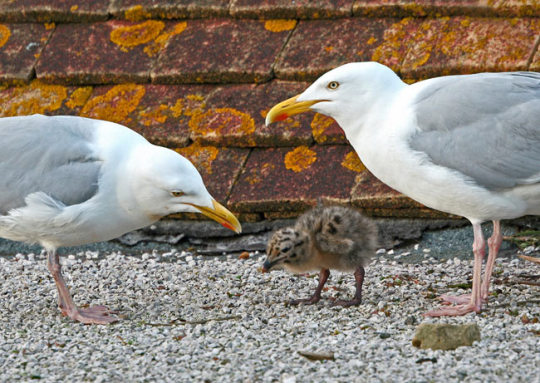
#im malding bc i read an article about some guy who beheaded a seagull for trying to steal his kids french fry#what the fuck is wrong with you
47K notes
·
View notes
Text
you know, you know. no gods, no masters, no kings on pedestals. everyone is fallible. death of the author. you know! you are balanced about your intake of media - you allow the wiggle room, the grace, the gratitude, the skepticism. nobody above criticism.
but still. a weird gut-punch feeling, something akin to betrayal. you read the article. surprise! an author you love is actually: a serial fucking predator.
well, shit. what now. no, you knew he was a person (all people are), but now you're wondering - what have i overlooked by accident? what messages have i internalized that are strange and cruel? and also, like, what the fuck?
his actions lay a thick glaze on top of everything. like each place is now ruined, opaque in a new way. but okay, fine, you've done this before. you knew better, right? you've been betrayed by many a cherished childhood author.
still, this stickiness. fuck. can you pick up that book again. will you read it to your children. you've recommended it to others - will you ever do that again? and of course, of course, no parasocial relationships. you were theoretically above this kind of sentiment. but the artist informs the art, right.
so it's not something as clear-cut as feeling he owed you, specifically (a stranger) better behavior - just that you kind of, in a distant and odd way... sort of trusted him to do better. it's not like a real trust or something speakable, just the faint hope that the product (good books) was a thin representation of the soul. now it feels like the product (good? books?) was a mask. in some small or insignificant way, your previous support of this person lent them power. your money and your time and your laughter.
and the thing is - you have this terrible, echoing sensation. how many times will this happen? over and over. you find out that the singer you love is actually a predator. you learn over drinks that your favorite high school english teacher is in jail for what he did to her. you listen to the news idly and suddenly discover that a woman you used to idolize has been abusing her kids for an actual eon.
what can you touch without the static melting off. you can't even really complain about it too much (you were supposed to know better, and besides, you don't want the same re-split "it's not your fault, love what you love" basic advice), but now it's here. somehow, it feels like - you let him into your life.
it's not that things need to be pure or an artist has to be like, endlessly perfect, mindful. demure. it's more just this terrible truth that has been replayed through your veins so often it feels criminally vain. power corrupts, absolute power corrupts absolutely. did you want any one person to be worth that power?
it's just that he wrote books where he seemed to understand that. he seemed to know about hierarchies and unfair systems and bigotry and privilege. you thought they were books about what it means to struggle. you thought they were about having power and still using it for good rather than for control. he spooned you a narrative of being a good guy, a kind soul. you fucking bought what that fucking monster sold.
maybe that's why they were fantasies, after all.
#spilled ink#warm up#oh im .... sick to my stomach.#i talked to him. like ....... we talked. that man interacted with my poetry and writing.#that article.... gutwrenching. i am so sorry to everyone he's ever even been in the room with.#i feel.... like... unbearably. sick.#he acted like he was cool and friends with me!! we were cool internet writers together!!!!!#i feel sick for even having been polite to him.#i ...... am experiencing something so fucking complicated.#i wonder how many of u are feeling that too. like ''oh i sent him an ask and he was funny and sweet''#THATS HOW THEY GET U. ..... and YES I KNOW!!!#i am so fucking well-read about parasocial relationships. it would just be nice to like. trust that someone ISNT#hiding a huge fucking background of BEING A COMPLETE MONSTER. LIKE WHAT THE FUCK.#by the way i am not part of a fandom. this is “what the fuck i accidentally supported a rapist” not#“but my showww”. like i care far more about like. the human cost.#but also like... people are people. idk i saw a take on here about how nobody should mourn the books#and idk. people almost always reply to any scenario with their personal experience first -#''i knew him'' or ''wow i was just at that store'' or ''i grew up there'' or whatever. because that is how we establish connection &#emotional weight. that's just... a person thing. and there is a difference between 'oh this guy is a monster'' & the feeling of:#he's been a monster and i SUPPORTED THAT. i CELEBRATED him. i !!! a fucking victim myself!!!!!!!!! SUPPORTED . HIM.#i am sick. i feel so much pain for her and everyone he's ever hurt. saying ''the books are ruined'' is i think ... like how people say#they're shocked and disgusted by him. (obviously there's nuance here. im sure there's some creep doin it wrong. but u know. in general)#idk..... im an author. i understand my work is in your life in whatever small way. i understand that connection. it's real.
2K notes
·
View notes
Text

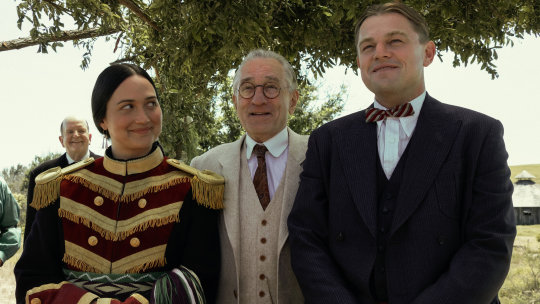
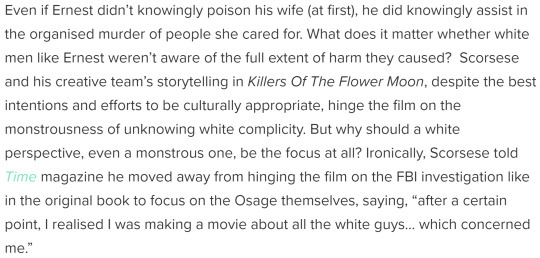

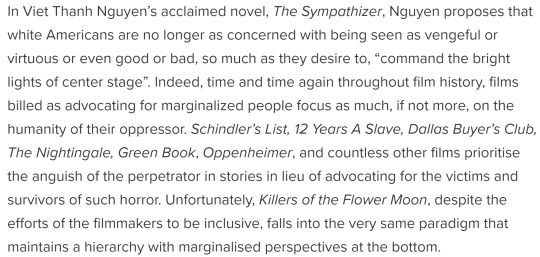
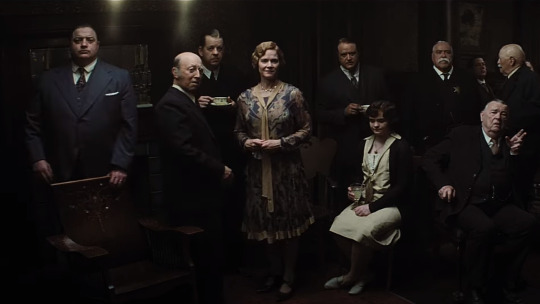

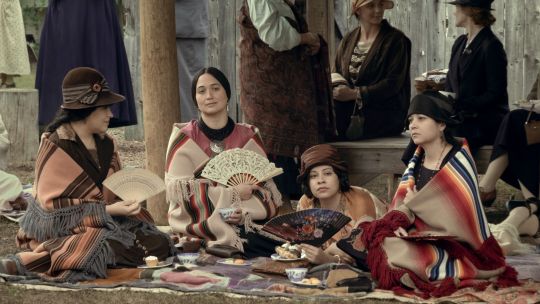
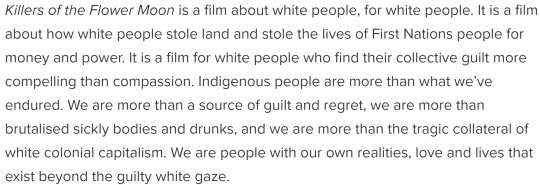
READ THE FULL ARTICLE HERE
‘Killers Of The Flower Moon’ Can’t Escape Its Own White Gaze by Merryana Salem / Killers Of The Flower Moon (2023). Dir. Martin Scorsese
#killers of the flower moon#martin scorsese#lily gladstone#indigenous#media representation#writing#read the full article if you can guys my editors are looking for any excuse to claim i am not good at my job rn#/
2K notes
·
View notes
Text

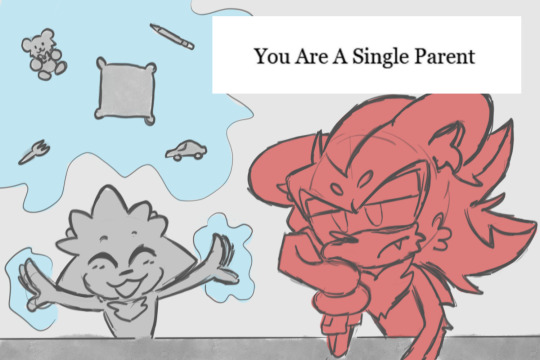
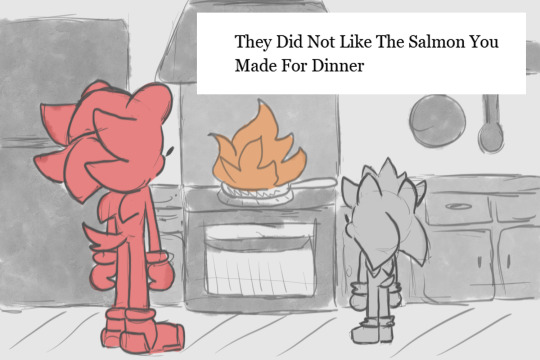
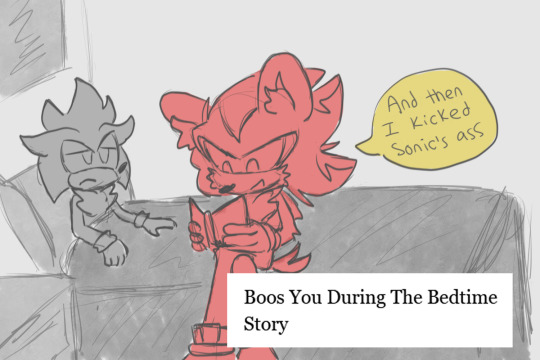

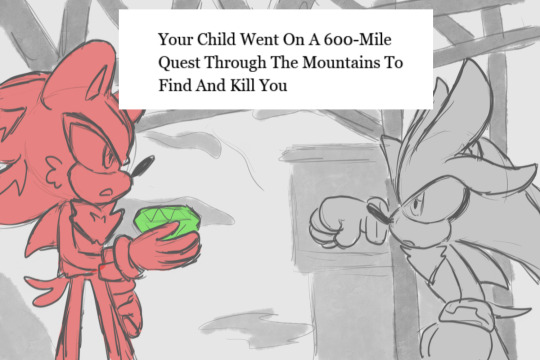

#its dadow hour again#and yes I'm implying ian jr is immortal#also sage if you're reading this this is the meme you predicted I was making#shadow the hedgehog#silver the hedgehog#dadow#sonic 06#sth#sonic#my art <3#also you guys should read this onion article. its hilarious there were a lot more and they slowly got crazier and crazier lmao#when you voluntarily decide to raise your childhood friend because you care about him but you're not even his favorite
3K notes
·
View notes
Text

What could he have meant by this
#pop art mash up…..#LICHTENSTEIN??#girl that’s like 30 years too late#60s pop art vs 30s noir OH BROTHER#spider noir#the dog speaks#those monsters better be goblin and.. vulture I guess#even tho vultures like a fucked up guy#not exactly a monster in the sense that I’m getting from this tweet#me when I hear a mutual talking about the fantastic and monsterous aspects they could add to noir: 😄���🙂↕️🙂↕️#me when I hear the same thing from a studio: 🙁😟#I DONT TRUST THEMMM#I read the article linked too that’s quite literally all he says abt noir
246 notes
·
View notes
Text
My fellow fandom frequenters!!!!!!
This feels kind of weird to do because I literally use this blog to talk about gay people and reblog pretty fan art but ya gotta do what ya gotta do:
I am a student journalist and I'm writing an article for class about the way that fandom spaces have changed over the years (especially over the pandemic) and the effects of the popularization of fandoms. I'm looking for people who are willing to talk about their experiences in fandoms, the communities and relationships that they've built, how they feel about the shift in fandom culture (or if they've even noticed a shift), etc!
Some things to note: this is not going anywhere besides to my professor (unless all participants actively want me to share it on Tumblr or something, in case anyone is interested in reading it -- it's really up to everyone's comfortability levels). The mode of interview is, once again, up to comfortability: we can do zoom calls, conversations over DMs, in-person meetups (this is obviously going to depend on where we live) -- once again, this is up to your comfortability!!!
My DMS are open and I would reallllyyy really appreciate any and all participants! Your voices are CENTRAL to this story because fandom is based solely off of the real conversations between community members!!! I'm really passionate about fandoms because it's been like. My whole life since childhood. So I'm really dedicated to making a beautifully authentic story out of this!!
Feel free to DM with any questions :) Or if you know someone who'd be interested, or have some suggestions on things you'd like me to write about or have any leads that I could research, look at, etc. -- just dm or even comment or reblog this and put it in the tags!!!
Reblogs are appreciated! I'll be tagging some popular fandoms in order to get some more traction
Edit: so many people dm’d thank you guys for helping a poor undergrad get a good mark on their paper :’) sorry if it takes a second for me to respond to your dm I’ll get to you I promise!! My dms are still open so if someone is reading this, you can still participate!
#fandom#fandom things#fandom etiquette#I honestly have no clue how to tag this so I hope I don't bother people by tagging popular ships and fandoms#jujustu kaisen#satosugu#supernatural#spn#destiel#bbc sherlock#nbc hannibal#johnlock#hannigram#abigail hobbs#dan and phil#klance#voltron#vld#one of the first scenes I wrote for this article is about reading dirty laundry LMF#the owl house#gravity falls#pokemon#artists on tumblr#genshin impact#bbc merlin#merthur#I miss those guys#the marauders#wolfstar#tgcf
108 notes
·
View notes
Note
Hey this is kinda silly but can you convince me to get Brothership?
The art style and animation is so beautiful and bouncy! (I'm a particularly big fan of the Luigi Logic moments in the boss fights.)
You can make a few decisions that will effect what happens in the plot going forward, which is WILD for a Mario game and definitely enhances the replayability aspect.
Speaking of replayability, there are a lot of side quests and new routes that open up as you discover and explore islands. There are so many different little corners to investigate outside of the main game that Brothership is no doubt going to take me a good deal longer than the alleged 30 hour runtime. I want to see everything.
The gameplay runs smoothly and is a ton of fun, and when things begins to get repetitive it throws in some new tool or ability to switch things up and keep things interesting. Fights are pretty easy at the beginning, but as you go along the game slowly ramps up the difficulty in ways that feel both challenging and fair.
It's a Mario and Luigi game, so of course almost all the characters are brimming with charm. Mario and Luigi's characterization in particular is A+. They are so sweet and wholesome.
I'm only partway into the plot and it slaps. I hear word it's got one of the most intense stories out of any Mario game, so I am super excited to see how things play out.
I say, if you're considering getting this game, go get it! Ever since I got my copy I've been waking up in the morning with my first instinct being to get on my switch to see what happens and what else I can discover.
#blossomaaoc#askbox#mario and luigi brothership#as someone who read that IGN article and got worried... I don't know what that guy was on#this game is great and the few flaws it has are easily buried beneath all the good aspects
87 notes
·
View notes
Text

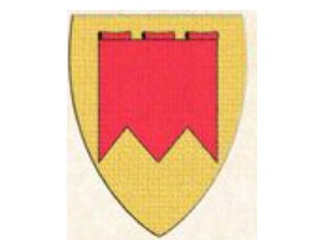
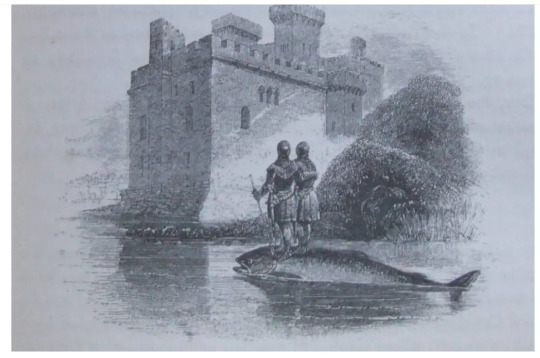
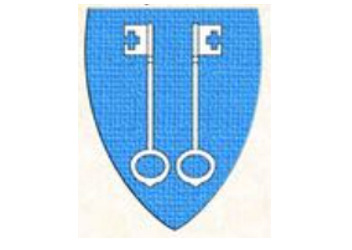

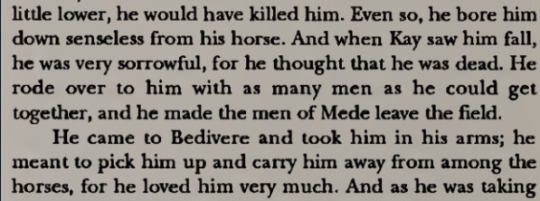






Sir Kay, Seneschal of King Arthur's Court, Harold J. Herman / Illustration from the Mabinogion / The Quest for Olwen, trans. Gwyn Thomas and Kevin Crossley-Holland / The Story of Merlin, trans. Rupert T. Pickens / Illustration from The Quest for Olwen, Margaret Jones / Wace's Roman de Brut, trans. Eugene Mason / The Mabinogion, trans. Lady Charlotte Guest
a collection of sir kay and sir bedivere: companions/lovers/worse, for @queer-ragnelle's may day parade
#fellas is it gay to forever be linked to your companion throughout texts and time#them being the first of arthur's knights ohhh im so emo about them.... arthuriana's most eternal couple#you guys should read that article i linked if ur interested in how kay changes over time btw!! it's really good#bedivere#sir bedivere#kay#sir kay#culhwch and olwen#vulgate cycle#mabinogion#arthuriana#arthurian legend#arthurian literature#medieval literature#knights of the round table#kay x bedivere#bedikay#i think ive seen people using that tag?#may day parade#I know this isn’t art so maybe it doesn’t count but the formatting alone should count as an art this was nightmarish to create#kay tag
180 notes
·
View notes
Text

#obx spoilers#outer banks#outer banks spoilers#{This is on par with that last season of How I Met Your Mother in levels of clownery from the writers.#And if you're like 'oh but Rudy wanted to leave!' 1) I DON'T BLAME HIM! SOME OF Y'ALL NEED TO TOUCH GRASS/HAVE SOME SHAME!#2) there was a way to write him him off of the show without killing him off. And a good writer could've done it.#and 3) I read an article that quoted the Pate's and they were pretty giddy about how JJ's real dad killing him was like SO evil of him#and he's SUCH an evil guy. And like… okay. Killing your own son is pretty evil. But also thanks I hate it!#Also if they try to make Kiara/Rafe happen next season I'll burn everything… though I don't see myself watching season five of OBX#Like unless it starts out with JJ's death being a fever dream or something.#tldr: killing JJ was shitty and lazy writing. If you disagree argue with the wall}
56 notes
·
View notes
Text
While some of both Davis and Crawford’s work could arguably be described as camp (for the former, King Vidor’s Beyond the Forest; for the latter, later-era films such as Strait-Jacket and aspects of the wondrous Nicholas Ray film Johnny Guitar), that their entire careers and places within film history are defined as such does a disservice to their artistry. But they aren’t alone in representing what has become a troubling trend when it comes to women’s work. As camp entered the mainstream lexicon, especially after Susan Sontag’s landmark 1964 essay, “Notes on ‘Camp,’” the term has been increasingly tied to work featuring women who disregard societal norms. Camp is often improperly and broadly applied to pop culture that features highly emotional, bold, complex, cold, and so-called “unlikable” female characters. I’ve seen films and TV shows such as the witty masterwork All About Eve; the beguiling Mulholland Drive; the stylized yet heartwarming Jane the Virgin; Todd Haynes’s Patricia Highsmith adaptation Carol; the blistering biopic Jackie; the deliciously malevolent horror film Black Swan; Joss Whedon’s exploration of girlhood and horror, Buffy the Vampire Slayer; the landmark documentary Grey Gardens (which inspired the 2009 HBO film starring Jessica Lange and Drew Barrymore); and even icons such as Beyoncé and Rihanna be described as camp. Look at any list of the best camp films and you’ll see an overwhelming number of works that feature women and don’t actually fit the label. Usually, What Ever Happened to Baby Jane?, the film whose behind-the-scenes story provides Murphy’s launching pad for Feud, will be at the top of the list.
While camp need not be a pejorative, that hasn’t stopped it from being widely used as such. In effect, being labeled as camp can turn the boldest works about the interior lives of complex women into a curiosity, a joke, a punch line. The ease with which camp is applied to female-led films and shows of this ilk demonstrates that for all the (still-paltry) gains Hollywood has made for women in the decades since Davis and Crawford worked, our culture is still uncomfortable respecting women’s stories.
That major Hollywood icons such as Marlene Dietrich, Bette Davis, Joan Crawford (and, more recently, Natalie Portman, thanks to Jackie) have been roped into this lineage isn’t surprising. Society doesn’t know what to do with women of this ilk without discrediting their very womanhood. Take artist and filmmaker Bruce LaBruce’s offensive description of Mae West in an essay on camp: “[She] played with androgyny to the degree that her final performance — her autopsy — was necessary to prove her biological femaleness.” In his 2013 essay “Why Is Camp So Obsessed with Women?”, J. Bryan Lowder expands on Sontag’s most well-known line: “It’s not a lamp, but a ‘lamp’; not a woman, but a ‘woman.’ To perceive Camp in objects and persons is to understand Being-as-Playing-a-Role.” Lowder writes, “‘Woman,’ the concept within the quotation marks, is not the same thing, at all, as a real woman; the former is a mythology, a style, a set of conventions, taboos, and references, while the latter is a shifting, changeable, and ultimately indefinable living being. Of course, there may be some overlap.” But if all gender is a performance, where does the “real” woman begin? And why does the presence of camp hold more importance than the actual work and voices of actresses such as Crawford, who have come to be defined by it?
At times, camp can feel like a suffocating label. Its proponents often misconstrue the fact that recreating oneself as a character is not merely an aesthetic for women, but rather, for many, a matter of survival. Living in a culture that profoundly scorns ambition, autonomy, and independence in women, girls learn quickly the narrow parameters of femininity available to them. When they transcend these parameters, life can get even more difficult. Women often pick up and drop various forms of presentation in order to move through the world more easily. Performance as a woman — in terms of how one speaks, walks, talks, acts — can be a means of controlling one’s own narrative. Camp often limits this part of the discussion, focusing instead on the sheer thrill of watching larger-than-life female characters cut and snark their way across the screen. How these works speak to women, past and present, becomes a tertiary concern at best, and the work loses a bit of its importance in the process; it either comes to be regarded as niche or, if it still has mainstream prominence, as abject spectacle. In turn, the conversations around these works become less about the women at their centers and more about how those women are presented.
Much of Baby Jane’s camp legacy comes down to how more recent audiences have interpreted Davis’s performance. She’s ferocious, frightening, and grotesque. But framing Davis’s performance as camp, as Murphy does, doesn’t take into account how dramatically acting has shifted over the course of film history. In some ways, camp has become a label used when modern audiences don’t quite understand older styles of acting. Modern actors privilege the remote, the cold, the detached. The more scenery-chewing performances that make the labor of acting visible — such as the transformative work that Jake Gyllenhaal did in Nightcrawler, or most of Christian Bale’s career — is typically the domain of men. (Or, at least, it’s only men who can get away with it without being called campy.) As Shonni Enelow writes in a marvelous piece for Film Comment, “[Jennifer] Lawrence’s characters in Winter’s Bone and The Hunger Games don’t arrive at emotional release or revelation; rather than fight to express themselves, her characters fight not to. We can see the same kind of emotional retrenchment and wariness in a number of performances by the most popular young actors of the last several years.” Davis’s work as an actor was the antithesis of that; she painted in bold colors. Even her quietest moments brim with an intensity that cannot be denied.
#I love being the guy who posts the article and gets to completely tear it up paragraph by paragraph until I have all my favorite parts#together 💗 but I’ve never seen Jackie and she does several paragraphs on Jackie that make me want to watch#reading#angelica jade bastién
395 notes
·
View notes
Text

bro what
#destiel#supernatural#us politics#not tagging this as trump or whatever the fuck because I am not touching that with a ten foot pole#anyways yeah. i don't think this was actually an assassination but like what the fuck maaaan how the hell is this the world we live in. wil#had a friend read the article live in vc and knew what i had to do#man it's so crazy that it's normal for a guy to have a bunch of guns in his car huh? huh? that isn’t normal?
76 notes
·
View notes
Text
trying to explain to my mother that the number three is not actually requirement for a throuple because two people can be three people. four people can be three people. a guy can contain any number of additional guys what’s so hard to understand. and she’s like What’s wrong with you
#what mimetic theory dies to a mf#conversation started bcs she read an article in the newspaper about throuples and i said oh just like oedipus and jocasta#like a) ghost of laius. b) they are both existing in multiple roles simultaneously c) OEDIPUS IS THREE ENTIRE GUYS#beeps
25 notes
·
View notes
Text


"Playing against a guy like Barkov too? It's gonna be a nightmare too, you know... so big and strong on the puck so... it'll be fun." when your beloved captain is such a defensive nightmare that you do celebrate extensively when you manage to get the puck away from him in practise but this isnt practise but a patriotic circus and he will collect his dues and also you have to be homoerotic about it too


"Any chance Tkachuk takes it easy on you?" "Absolutely no chance. He'll be running me over and chirping me. It'll be hilarious." once again... buddy dont look too excited about it we have to have decorum around these parts...
4 nations face off team sweden media availability | 2.11.25
and also on things that haunt me personally...


finnish reporter using this interview, attributing the comment about maffhew ("Absolutely no chance. He'll be running me over and chirping me."→"There is absolutely no chance that [Sasha] will play looser against me. He will come and roll me over and throw a punch.") to sasha
and now we can't say for certain who is being referred to in "I know his tricks to get under your skin and he knows mine. I won't tell you about them though." because the TSN video cuts off before he can say it (unless they collected quotes afterwards which also happens) so im gonna lose my mind at schrodinger's maffhew/sasha if you need me 👍
#gustav forsling#aleksander barkov#matthew tkachuk#florida panthers#4 nations face off#2425#whats in a talking about benny running you over and going mmmmm sasha yeah its gonna be a fucking nightmare going agaisnt him too#girl dont drool while you say... have some couth#the “i hate going against this teammate” hierarchy goes as follows: maffhew→forsy→sasha#its a love triangle of competition?#this is all very haunting to me...#big and strong... yeah forsy? yeah?#call him a fucking nightmare wrapped up in a wet dream why dont ya#but yeah re:the finnish article it does make more sense if you read that part as maffhew#because it seems very uncharacteristic for sasha to throw a punch or try to purposefully irritate forsy#when he's said in concerns to facing matthew you have to ignore him or if you have a good chirp game engage him#and theres enough doubt in my mind i do have to bring it up#is it possible this could be a quote collected afterwards? yes for sureA#but also since the tsn video has the last thing forsy talks about being maffhew you know.... there is some doubt#schrodinger's maffhew/sasha if you will#so yeah ill be haunted by this does anybody need anything?#forsy thinking itll be funny to see maffhew try to truck him down...#to which he said maffhews a funny guy when katie told him about the fact maffhew admitted forsys the guy hes chirped the most so fa#hes utterly amused by maffhews antics... hes like a little jester to him... not much of a threat but fun to let him rile himself up#wow forsy...
24 notes
·
View notes
Text
You know what the Giyuu bath scene Aniplex was too much of a coward to give us really needed? A gay awakening. So sayeth the lord (me in my google docs)
#just got his ass kicked by sanemi in a spar#goes home to have a gratuitous bath scene thinking ‘well I can’t NOT fuck him’#you’re right Giyuu!!!#postcards from stupid town#Giyuu is taking the am I gay online quiz#and sanemi is reading a buzzfeed article called top ten ways to show affection and feel love without channeling it into violence#they’re closing the web pages when they don’t get what they want#I’m a real writer guys#sanegiyuu
63 notes
·
View notes
Text
anyway before i got extremo derailed tonight, i was reading neon's curated collection of quotes from a russian interview with klim kostin and it got me wondering if any nhl teams keep chaplains on staff. considering this is the league where they will not even provide translators or language teachers like 95% of the time, i wasn't expecting them to, but cursory research turned up hockey ministries international which appears to pair local christian church pastors with junior, minor, and major leagues and call it chaplaincy even though everything on their website feels like youth pastor jock version. also found this very interesting if christian-focused athletic article from 2019 about the roles of faith in the nhl which mentions 23 nhl teams having a chaplain on staff. but the entire framing around the hmi program and chaplains in the nhl seemed to be around christianity? which admittedly i have only experienced chaplaincy in relation to hospice or extreme crisis situations so maybe single-faith focused chaplaincy is more standard when people aren't like imminently dying.
all of which of course gave me one million more questions while i was doing the dishes. like -- inclusitivity 101 but if they hired chaplains with interfaith training at all levels would they start seeing more religiously and culturally diverse players. and was also wondering if, even though hmi claims to be non-denominational, what kinds of outreach they do for orthodox players like kostin (i assume) or vasilevskiy (mentioned in the article) because none of the language on their website felt ecumenical. and also what kind of spiritual care they offer players in player assistance -- i feel like it's not uncommon to hear about goalies finding religion and coming out of player assistance concurrently. and also the number of goalies themselves who are christian, which was particularly interesting to me, as in the article, most of the ones who self-identified didn't come to faith until adulthood or were deeply on the pro-league career track. i also think about like--like what are the ahl (or echl/sphl) chaplains doing for the players who were raised with prosperity gospel and the various threads associated with that
and these are all very fascinating trains of thought for me to chase bc i love thinking about how faith impacts our lives broadly and in my little hobbies specifically but what i kept getting stuck on is if the framing around spiritual care in the nhl is all christianity, who is providing spiritual care at each stop for nazem kadri, who is a practicing muslim
#not to be all whatever. but one wonders#hockey for ts#anyway it's past midnight so i can't follow this thread anymore but i read an article from fuller magazine about a guy who is chaplain#for warriors and 49ers who started out as a chaplain at san quentin which is. a fascinating career track#but like notably 49ers pretty consistently have one or a couple muslim players on their squad each year. so.#anyway last point i googled and 49ers also employ a catholic chaplain. which is wild i need to chase this thread in the mlb too#alas it is 1am and i have to wake up early to complain to my own pastor at length
21 notes
·
View notes
Text
.
#I don’t think I really like Taylor Swift that much anymore#and today just kinda cements that#like I’m just not interested in reading another article about how fucking successful she’s been this year#like I just do not feel connected to her artistry anymore like I used to and that’s a shame#but oh well#not me complaining about Taylor swift to my majority swiftie following#sorry guys#but I’m over it
96 notes
·
View notes